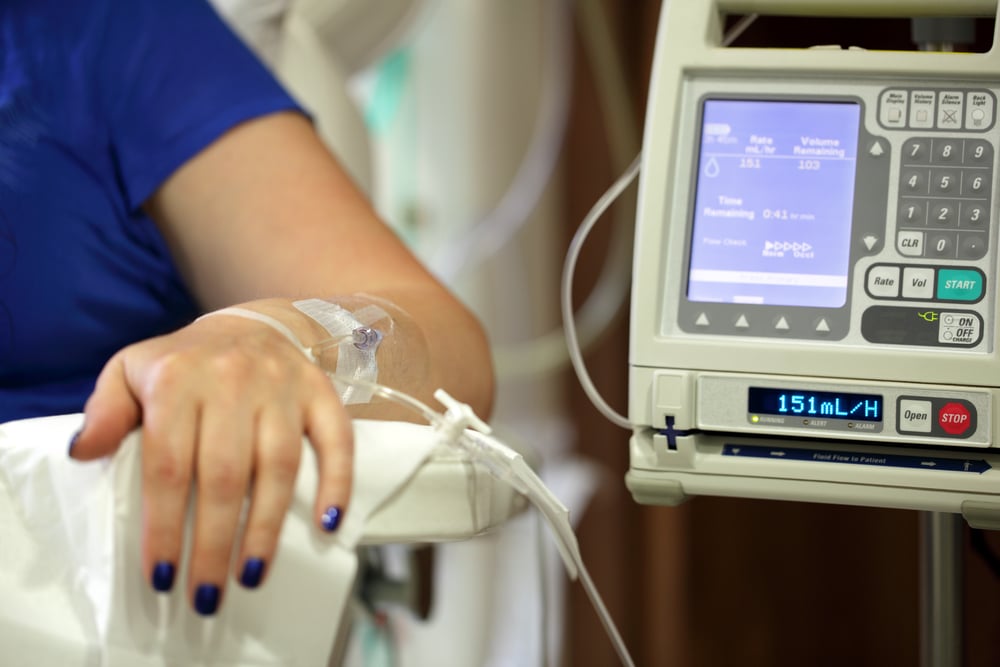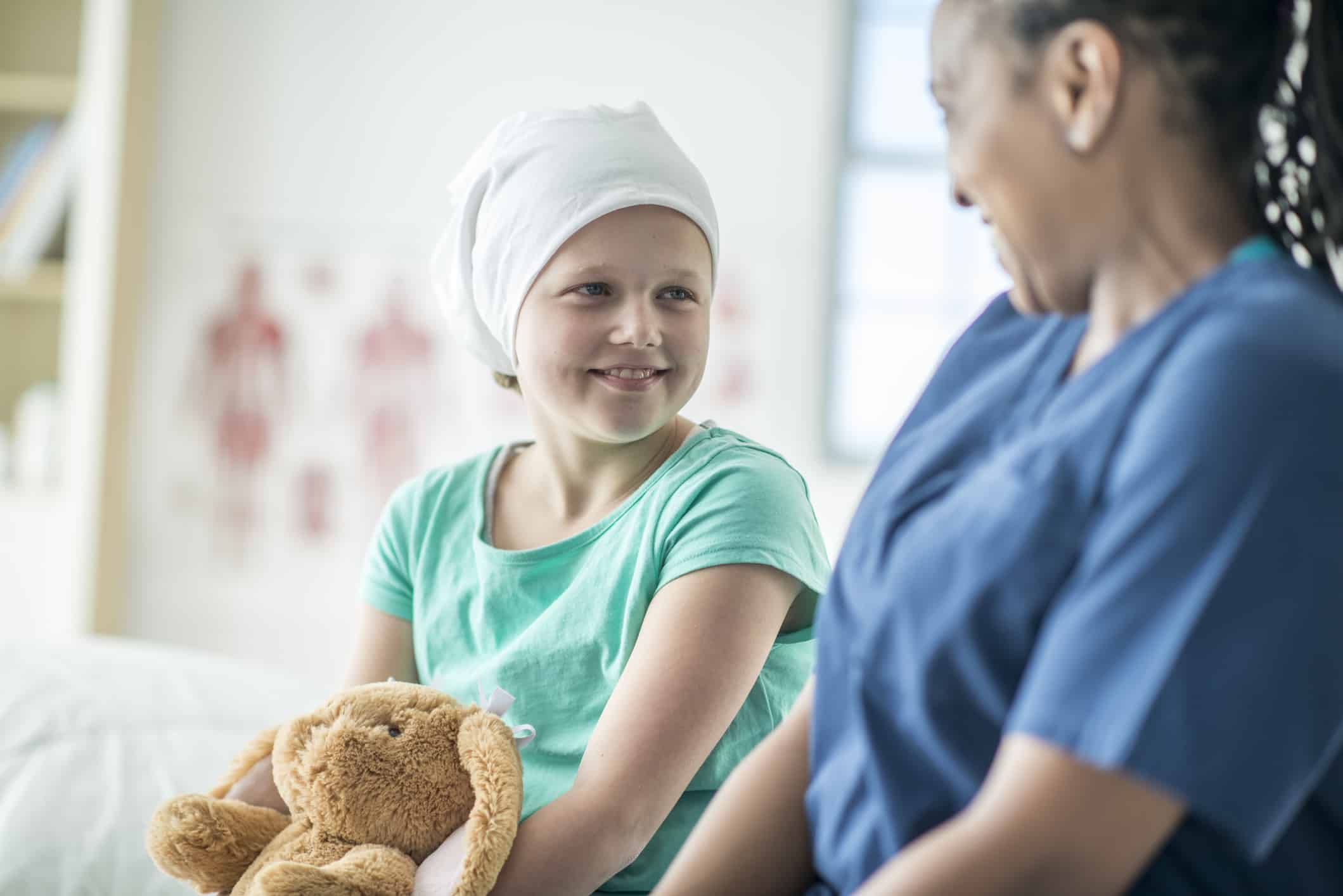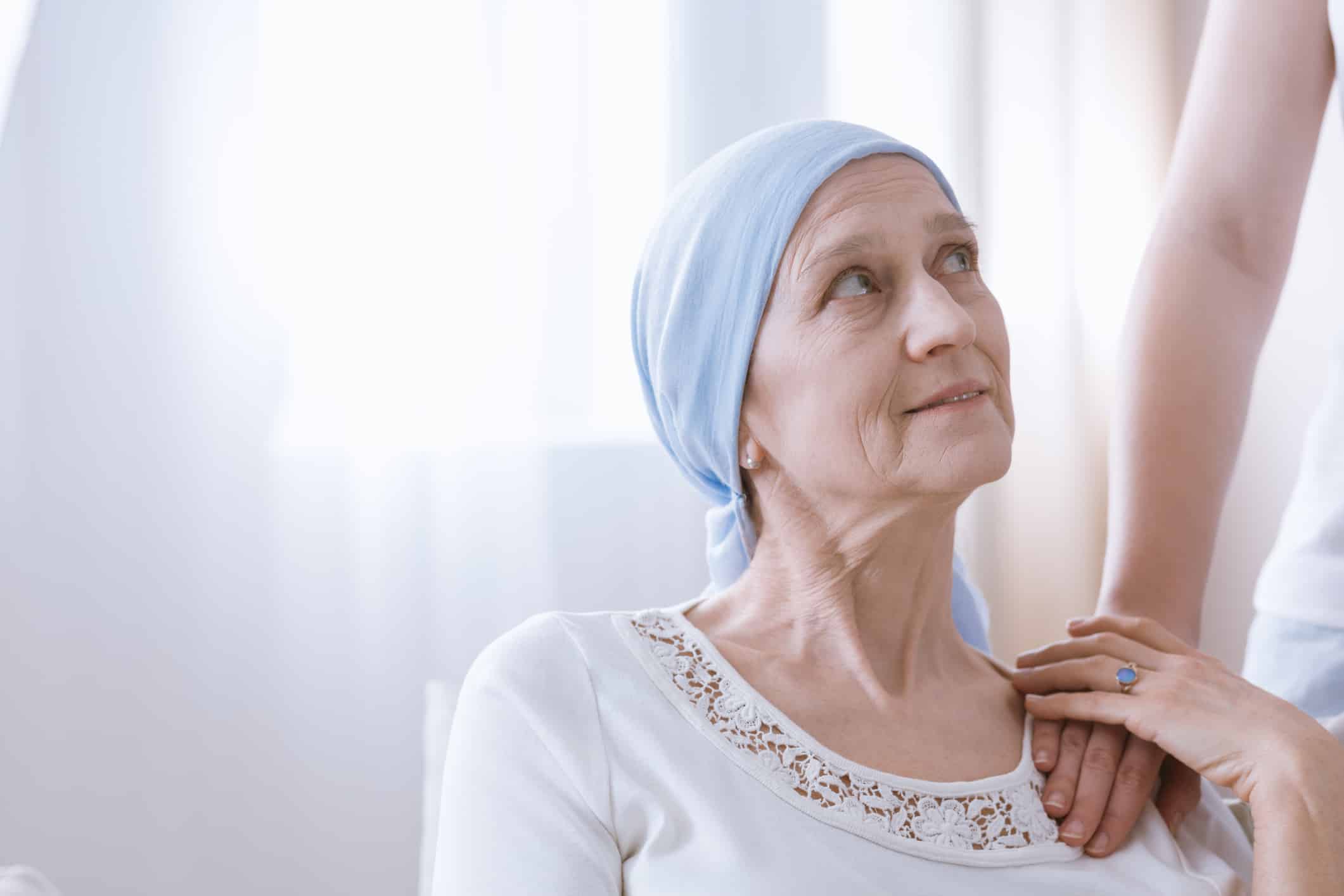What is chemotherapy?

At Summit Healthcare, we offer chemotherapy for patients at our cancer center. Chemotherapy is a form of cancer treatment that destroys cancerous cells. It is typically the primary choice in cancer treatment but can be used in combination with other treatment such as surgery or radiation. Most commonly, a medical oncologist, who specializes in treating cancer with medication, will administer the chemotherapy to patients.
Chemotherapy aims to target and remove malignant cells that contain cancer. At times, chemotherapy can affect healthy cells as well. This causes patients to experience side effects and have healthy cells in their hair follicles, gastrointestinal tract, and bone marrow to be negatively affected.
Summit Healthcare Chemotherapy Department
Here, at Summit Healthcare Cancer Center, we pride ourselves on our welcoming chemotherapy department and knowledgeable oncology nurses. Our mission is to provide pharmaceutical treatment to our clients in an outpatient setting, consistent with the hospital-wide quality of care practice standards. The chemotherapy department supports the transfer from inpatient acute care services to outpatient care, working with discharge planners and physicians to allow a smooth transition for the patient. We also work with physician offices and other hospitals to provide outpatient services for their patients.
Our department sees approximately 4,800 patients per year. Patients have stated how much they love the “family environment” in our chemotherapy department. They enjoy coming in for their treatments because they are treated like family. We care for our patients at our “new and improved” unit. Patients have access to a chair that fully reclines, music, books, an aquarium, surround sound, and friendly distractions to help them get through their day.
Our Qualified Oncology Nurses
Our oncology-certified nurses have met or exceeded requirements for practice in cancer care, have completed education in oncology nursing, and have a tested knowledge of the specialty. Certification in oncology nursing is based on current professional practice, so it validates a nurse’s knowledge is up-to-date. As cancer treatments become more complex, patients will require increasingly specialized care. Oncology certified nurses have both the knowledge and experience to deliver that care effectively.
In order to be eligible to test for an OCN, an RN must have a minimum of 1,000 hours of oncology nursing practice and have completed 10 contact hours of accredited continuing education in oncology nursing. If accepted, the RN must then pass a rigorous exam in order to become Oncology Nursing Certified.
What types of cancer can chemotherapy treat?
Chemotherapy is a customized aspect of cancer treatment that may be recommended for a wide range of situations. Examples include:
- Breast cancer
- Certain types of bone cancer
- Brain cancer
- Cervical cancer
- Hodgkin lymphoma
- Recurrent or advanced stage prostate cancer
- Throat cancer
Who is a good candidate for chemotherapy?
Every cancer diagnosis presents specific challenges and needs. Having cancer is not a predetermined qualification for chemotherapy. Doctors consider patient age, type, stage of cancer, and potential alternatives such as radiation. Additional considerations that must be made prior to starting a regimen of chemotherapy include patient compliance (oral chemotherapy) and ability to maintain reliable dosing and the method of administration that may be most effective.

Our team conducts a thorough testing process to fully understand each cancer diagnosis. Patients can expect to receive the full extent of information regarding proposed treatment options as well as ongoing support as their long-term health is safeguarded.
How is chemotherapy administered?
There are a variety of treatment options for chemotherapy. In the past, chemotherapy was dispensed intravenously but more recently oral medication options have become more common. Factors such as type, stage, and location of cancer dictate the type of chemotherapy a patient may receive. Our skilled staff at Summit Healthcare Cancer Center will discuss these options with you during your appointment.
- By injection into the muscle or fatty tissue
- Intravenously, through a vein into the bloodstream
- Intra-arterially, into the artery supplying blood to the cancer
- Intraperitoneally, into the peritoneal cavity of the abdomen
- Orally, as a pill, capsule, or liquid
- Topically, for some skin cancers
How often will I receive chemotherapy treatment?
Chemotherapy is dosed and administered based on a schedule that is customized to your needs. The duration and frequency of chemotherapy treatments are determined by factors including:
- Type and stage of cancer
- Purpose of treatment: to ease symptoms, control cancer growth, or eliminate cancer
- Type of chemotherapy prescribed
- The unique physiological response to chemotherapy
Treatment may be scheduled in cycles, or a period of active treatment followed by a period of rest before a new cycle of chemotherapy begins. For example, a cycle may involve daily treatments for one week followed by a three-week break to allow the body to build new cells.
It is important to maintain the schedule of treatments prescribed by your doctor. In some instances, the schedule may be modified to address certain side effects. Should this become necessary, the healthcare team discusses the reasons for the change in schedule, what to do during the break in treatment, and when treatment should resume.
How successful is chemotherapy in treating cancer?
The objective of chemotherapy is to extend a patient’s life expectancy and also maintain an optimal quality of life during and after treatment. Chemotherapy may be selected as a sole method of care or as an aspect of a wider treatment plan that also includes surgery and/or radiation or other therapies. The protocol developed for each person seeks to either eliminate cancer or slow the growth of cancer cells while preserving the highest level of physical and emotional well-being possible.

The success of chemotherapy is measured by the overall improvement a person experiences from their treatment. Most statistics speak in terms of five-year cancer survival rates or the absence of cancer after a certain number of years. What research can’t fully explain is how any particular treatment performs on a broader scale. Understandably, statistics can be frustrating. It is nearly impossible to compare two cancer cases side-by-side because factors vary so widely from one patient to another. The success of treatment relates to numerous factors, including the patient’s general health at the onset of chemotherapy, the type and stage, and aggressiveness of their cancer, and also how their unique physiology responds to treatment.
Is the chemotherapy treatment painful?
Pain is typically not encountered during an actual chemotherapy session. Patients receiving IV chemotherapy may experience a slight pinch when the IV is inserted. Medication may also cause a mild burning or cooling sensation as it enters the bloodstream. These feelings are generally mild and temporary.
Treatment may become uncomfortable if side effects develop from the drug being in the body. As a team, we strive to minimize the side effects of chemotherapy as much as possible.
Side Effects of Chemotherapy
There are both long and short-term side effects as well as external and internal side effects of receiving chemotherapy. Side effects of chemotherapy are common since treatment damages both healthy and malignant cells. Once healthy cells begin to recover, after treatment has stopped, many side effects become less severe or end. Our staff at Summit Healthcare Cancer Center will discuss how to cope with any side effects that can occur before you begin treatment. Short-term side effects include:
- Constipation or diarrhea
- Difficulty swallowing
- Dry Mouth
- Fatigue
- Hair Loss
- Loss of appetite
- Nausea and vomiting
Some side effects of chemotherapy do not appear until months or years after treatment has ended. These side effects are less common and vary based on the type of chemotherapy drug that was used.
- Heart problems
- Infertility
- Kidney problems
- Lung-tissue damage
- Nerve damage
- Risk of a second cancer
How can you manage the side effects of chemotherapy?
Chemotherapy is a powerful tool in the fight against cancer, but in addition to killing the cancer cells, these drugs can wipe out lots of healthy cells in your hair follicles, digestive tract, bone marrow, and more.
Typical side effects of this damage are nausea, dry mouth, fatigue, and hair loss, among the others listed above. Your side effects will be tied to the drugs used, and not all these drugs cause side effects.
You don’t have to take these side effects without fighting back, so here are some tips for actions you can take to help with the side effects of your chemo.
Fatigue —
Fatigue is the nearly universal side effect of just about all chemotherapy drugs. Your fatigue peaks on the days immediately following your treatment, and then tends to decrease.
It can seem counterintuitive when you don’t feel like moving from the couch, but one of the best ways to feel more energy at these times is to exercise. It doesn’t have to be an arduous aerobic or weightlifting session; just walking can be very helpful.
Other ways to ease your fatigue include taking short naps or rest breaks of under 30 minutes during the day. Stick with your regular sleep schedule, eat a balanced diet with protein, and drink 8 to 10 glasses of water every day.
Nausea and vomiting —
Another typical side effect is nausea and vomiting. But thanks to many new anti-nausea drugs, this side effect isn’t as daunting as it was just a decade ago. At Summit Healthcare we can provide you with the right medication to help stem or even fully alleviate your nausea.
Beyond medication, eat several small meals instead of three large ones and avoid greasy and spicy foods. Research has also shown that acupuncture and relaxation techniques such as deep breathing and meditation can help ease chemo-related nausea.
Hair loss —
Some chemo drugs have the well-known side effect of causing hair loss. If we put you on one of these drugs, let’s talk about the possibility of a cooling cap. This is a new technique for lowering the risk and effects of chemo on the hair follicles. You wear the cooling cap during treatment and the cooling constricts blood vessels in the scalp. This reduces the amount of the chemo drug that reaches the cells of the hair follicles, lessening their destructive impact.
And be nice to your hair during these times. Change from a brush to a wide-tooth comb. Avoid putting your hair in a ponytail (to avoid pulling). Try to not use a hair dryer or iron on your hair. Don’t use chemical treatments during this time.
Mouth sores —
Chemo drugs can harm the healthy cells in the lining of your mouth, which can lead to the formation of small, painful sores inside your mouth or on your lips. There is not any definite method for preventing this, but research has shown that sucking on ice chips during treatment may reduce your risk for developing these sores. A study from 2019 found that when patients kept ice chips in their mouths for as long as possible during chemotherapy sessions, they experienced significantly fewer mouth-related side effects.
Wash your hands —
Chemotherapy can suppress immune function by lowering the number of white blood cells produced in your bone marrow. White blood cells are the main combatants in the endless struggle against viral and bacterial infection. Plus, it’s likely your stress levels are high, sleep is spotty, and your diet is haphazard, all of which impact your immune function.
To reduce your chances of infection, be diligent about washing your hands. Before and after eating and before touching your eyes, nose, or mouth, and carry an alcohol-based hand sanitizer to clean your hands when you’re out. That shouldn’t be too unusual after our recent COVID experience.
- Constipation or diarrhea
- Difficulty swallowing
- Dry Mouth
- Fatigue
- Hair Loss
- Loss of appetite
- Nausea and vomiting
Some side effects of chemotherapy do not appear until months or years after treatment has ended. These side effects are less common and vary based on the type of chemotherapy drug that was used.
- Heart problems
- Infertility
- Kidney problems
- Lung-tissue damage
- Nerve damage
- Risk of a second cancer
Will I lose my hair from chemotherapy?
Some chemotherapy drugs do cause hair loss. Others do not. We will discuss your risk with you when we match you with the chemo medication we think is the best option for your needs.
How do I prepare for chemotherapy?
You’ll want to do some things to prepare for chemotherapy. These steps proactively expect fatigue, possible infection, and the like.
- Talk to your employer — Employers cannot discriminate against you during chemo; some companies give their employees time off for chemotherapy. Either way, you’ll probably want to schedule your sessions around work. Flexible schedules are the way to go, if possible.
- Clear your schedule — Don’t plan any social events, meetings, or activities in the hours after your chemotherapy treatment. You’ll likely want to go home and take a nap.
- Call in the calvary — You’re not going to feel like being the cook or taking care of the kids when you’re dealing with fatigue or nausea. Cook meals ahead of time and freeze them or have others do the cooking and kid management.
- Get a ride — You may feel fine immediately after your session, or you could feel quite tired and be unsafe behind the wheel. There is no way to know, so have someone drive you to and from your session. Plus, having the company helps provide emotional support.
- Visit your dentist — Get any necessary dental work or routine cleanings done before you start chemotherapy, as mouth sores are a common side effect.
- Stock up on good stuff — Eating lots of fruits, vegetables, and high-protein snacks like yogurt helps your body deal with the effects of chemo.
- Plan for pet care — You’ll likely be at a higher risk for infection, due to decreased white blood cells, so you need to avoid picking up dog waste or cleaning litter boxes, bird cages, and fish tanks.
- Plan for safe sex — You do not want to become pregnant while you are having chemotherapy, as these drugs can damage sperm and cause birth defects. Also, chemo drugs stay in semen and vaginal fluids, so even if you take birth control pills, you should use condoms.
- Manage your waste — For 48 hours after your treatments, small amounts of your chemotherapy drugs will leave your body through urine, vomit, and other body fluids. It’s important to keep these drugs away from yourself and anyone else in your home.
